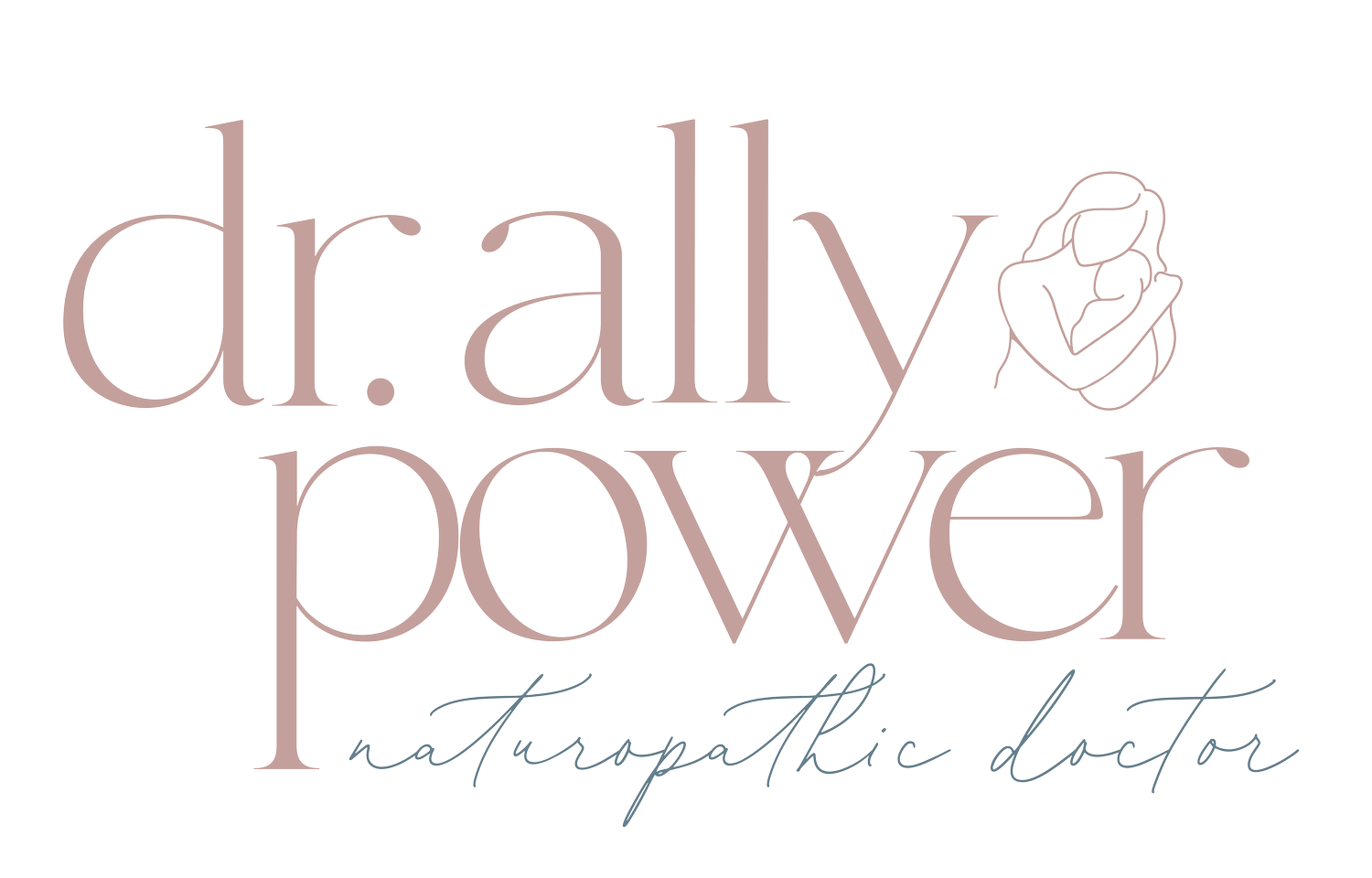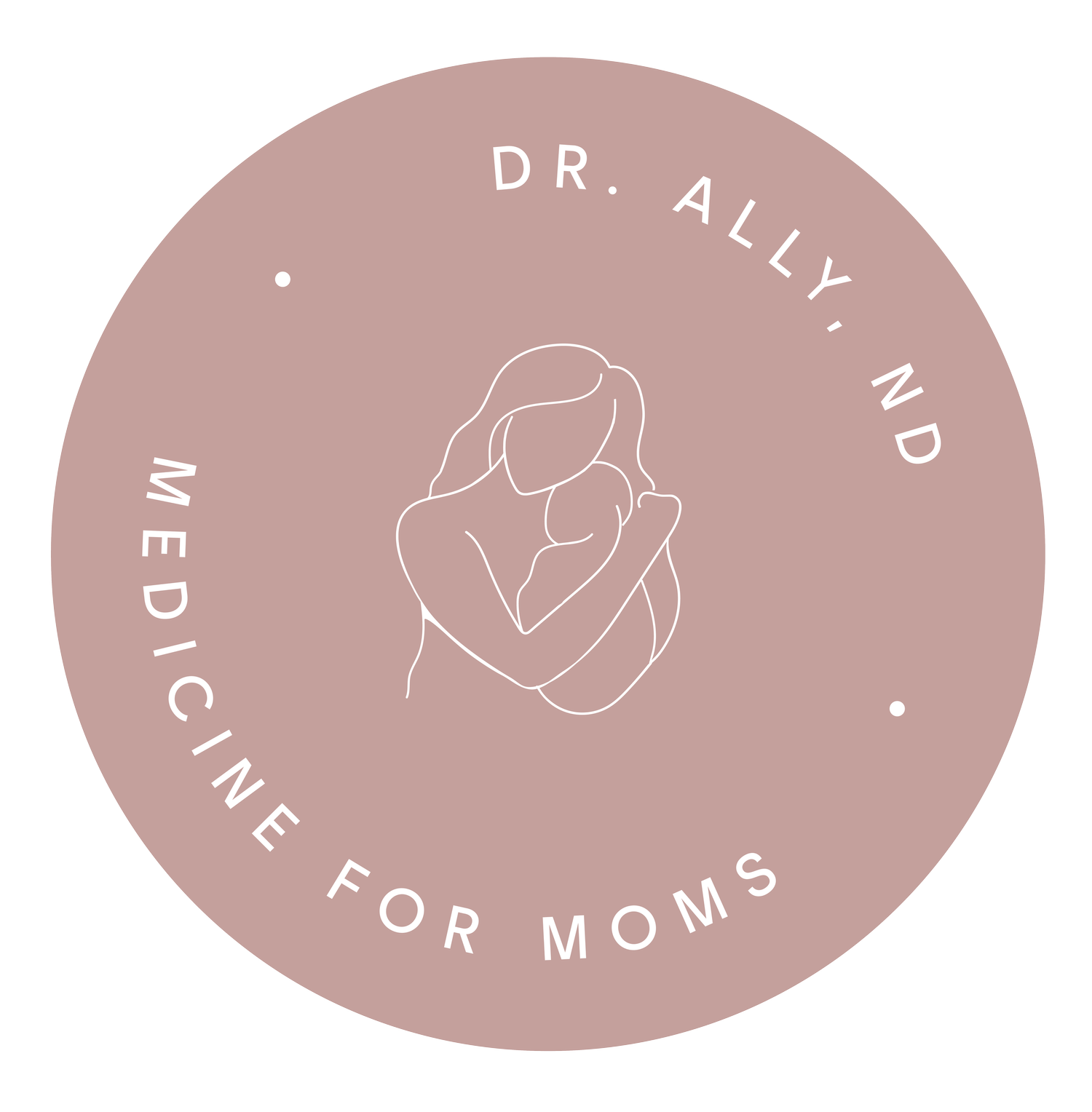Postpartum Hair Loss
I want to start off by saying that postpartum hair loss really sucks, but it is NORMAL. It is a natural response to the changes in your hormones postpartum.
Anyone who tells you it isn’t is likely trying to sell you something (sorry for the bluntness, but it’s true!). However, the amount, and duration of hair loss, may be able to be modified. This blog is all about postpartum hair loss, signs that there might be something else you can do to help, and what to do next!
Why does it happen?
Typically, each little hair follicle on your head is on its own little path in its growth cycle. It goes between phases of growth (anagen phase), transition (catagen phase), and resting (telogen phase).
Though there are other factors that can affect this growth cycle, pregnancy and the postpartum period is one of them. Hormone changes in pregnancy shift this growth cycle, leading to luscious, thick hair during pregnancy.
The increases of hormones while you are pregnant cause the majority of your hair follicles to remain in their growth/anagen phase, leading to thick, fuller hair during pregnancy.
After delivery, your hormones all rapidly decrease. The rapid decrease of hormones postpartum cause all of your hair follicles to sync up together, leading to a mass exodus of hair at the same time
This means that all of your hair follicles enter the resting phase at the same time, leading to all of those hairs not lost postpartum, falling out now.
So whether or not YOU are resting postpartum, unfortunately, your hair follicles sure are!
Timing and location?
This hair loss typically begins around 2-5 months postpartum and continues for 6-24 weeks after it begins, which is a LONG time! This means that not every woman will have an improvement of symptoms at the same time postpartum, so practice patience!
Typically the loss happens in the temple area, and around the crown of the head.
Is there anything I can do?
While research around this topic is lacking, we do know that there isn’t really anything you can do to STOP this hair loss, because again, it is a natural part of the postpartum hormone changes. HOWEVER,
Deficiencies in certain nutrients such as iron, protein, essential fatty acids, certain trace minerals, zinc, and / or Vitamin D, may worsen or make hair loss last longer. Additionally, if you have a thyroid condition, hair loss can be more pronounced.
THINGS YOU CAN DO:
Ensure you are eating enough - particularly if you are breastfeeding. Typically breastfeeding mothers require 300-500 extra calories / day.
Eat a nutrient-dense diet focusing on iron-rich foods, adequate protein and healthy fats, and loads of veggies. One of my favorite resources for postpartum nutrition is Lily Nichols, RD.
Stay well hydrated, including electrolyte replacement if indicated.
Ensure your iron and thyroid and Vitamin D are thoroughly tested by a practitioner with a focus in the postpartum period
If you want to inquire about this testing and you live in BC, you can book an appointment here
Assess your mental health, and stress levels, and reach out for support if you are struggling in these areas. Stress affects your hormones, in turn typically worsening hair loss.
In Summary:
Postpartum hair loss is NORMAL, and expected due to hormone changes.
It typically begins at around 2-5 months postpartum, and will typically last anywhere between 6-24 weeks.
Focusing on nutrient-dense foods, enough calories, hydration, stress management, and prioritizing your mental health can all help.
Seeing a practitioner focused on the postpartum period for lab testing (specifically thorough thyroid testing, anemia screening, and Vitamin D testing) can ensure you don’t experience this loss in excess.
Overall, postpartum recovery is a journey with lots of ups and downs. Keep realistic expectations and reach out for help if you feel like something isn’t quite right.
Are you struggling with postpartum hair loss? Let’s chat and see if we can improve things for you!

